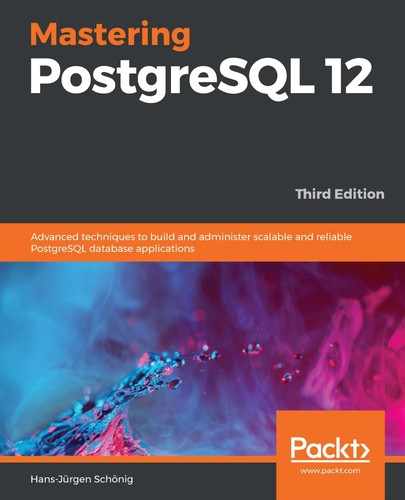Sometimes, it is necessary to share data across calls. The infrastructure has the means to actually do that. In Perl, a hash can be used to store whatever data is needed. Take a look at the following example:
CREATE FUNCTION perl_shared(text) RETURNS int AS
$$
if ( !defined $_SHARED{$_[0]} )
{
$_SHARED{$_[0]} = 0;
}
else
{
$_SHARED{$_[0]}++;
}
return $_SHARED{$_[0]};
$$ LANGUAGE 'plperl';
The $_SHARED variable will be initialized with 0 as soon as we figure out that the key that's been passed to the function is not there yet. For every other call, 1 is added to the counter, leaving us with the following output:
test=# SELECT perl_shared('some_key') FROM generate_series(1, 3);
perl_shared
-------------
0
1
2
(3 rows)
In the case of a more complex statement, the developer usually doesn't know what order the functions will be called in. It is important to keep that in mind. In most cases, you cannot rely on an execution order.
